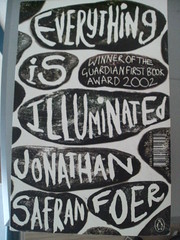I have to say that I’m really glad that I have a TV in Brussels, even though in the beginning I was very reluctant. The reason is simple: except for Finnish, Portuguese and Spanish-language channels, in my (very small) TV I have plenty of channels in French, English, Dutch, German and Italian, which means that I can practise those languages in the comfort of my home.
It’s not that I speak any of them perfectly (there is no such thing anyway), but I really like the different doors they open, different ways of thinking and so on. As my old German texbook name said, they’re bridges between peoples.
The most fascinating thing is that there’s still so many to learn. I’d like to study Latin, Chinese, Japanese, Arabic, Russian, Náhuatl, Yucatecan Maya…
So much to learn, so little time…
